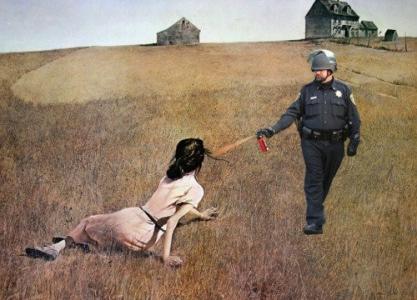The Year in Digital Humanities

2011 was a year of enormous change in computing, technology, and online. In honor of the New Year, I present the most notable stories in technology from 2011 (and what it means for scholars in the Humanities). See you in 2012!
1. Berkeley Students, Staff, and Faculty Get Free Stuff
In 2011, Operational Excellence sponsored a Productivity Suite project that included campus-wide distributions of Adobe software, Microsoft Office, and (soon) Google Email and Calendar Solutions.
What This Means for Digital Humanists: If you’re part of the Berkeley community, you just received thousands of dollars worth of software for free. The lesson here is to never, ever ignore emails from Operational Excellence.
2. Political Discourse Gets Meme-d
Memes are ideas on the internet that go viral. The editors of Know Your Meme, a Web site dedicated to tracking this sort of thing, singled out two of their favorites: Rebecca Black’s so-bad-its-kinda-good YouTube video “Friday,” and the remixed images of a police officer spraying UC protestors. Never to be outshined, Facebook has its own catalogue of what people were talking about in 2011. The Death of Osama bin Laden was number one, followed by Packers win the Super Bowl. An eclectic mix, indeed.
What it Means for Digital Humanists: Memes are one of the most important facets of internet archiving. Plus our very own director Celeste Langan starred in one particularly important meme – demonstrating (very close to home) what happens when videos go viral.
3. Intellectual Property Trump Civil Liberties
In terms of online freedoms, SOPA made headlines, but 2011 saw a trend of legislatures — Democrats and Republicans alike — turned a blind eye to important civil liberties issues, including Patriot Act reform, and instead paid heed to the content industry’s desires to stop piracy.
What it means for Digital Humanists: To the extent that digital humanists care about privacy and access to information, this is a pretty big deal.
4. Secret Tech Suddenly Not So Secret Anymore.
We all know we wouldn’t have the internet if it wasn’t for the military (and the pornography industry), but 2011 demonstrated quite viscerally the link between technology and warfare.
Israel used a computer worm to sabotage Iran’s nuclear development. Drones used extensively in various combat missions (including the death of Osama Bin Laden). The hacker group Anonymous continued their online mayhem targeting everyone from the Tunisian government to BART personnel.
Even the US government is not safe from cyber warfare. In the past two months alone we've seen attacks against the US Chamber of Commerce, Landsat-7 and Terra-AM1 satellites, various chemical companies, and more. A report called Foreign Spies Stealing US Economic Secrets in Cyberspace published by the Office of the National Counterintelligence Executive this October accused Chinese hackers of being "the world's most active and and persistent perpetrators of economic espionage."
What It Means for Digital Humanists: Expect more delays on BART.
5. The Rise of the Tablet.
The trickle of tablets began in 2010 with the iPad and the Galaxy Tab, but in 2011 the floodgates opened. Get yours for as low as $99.
What It Means for Digital Humanists: A book I downloaded on Amazon says the rise of tablets signal one more nail in the coffin for real live book stores. By the way - What’s a book store?
6. It's All Mobile
The mobile web is growing faster than the desktop one, and becoming the focus of technology innovation. Taken together, 2010 and 2011 have been the years of fastest growth ever in the smartphone market, at 72% and 50% respectively.
What It Means for Digital Humanists: The growth of the mobile market goes hand-in-hand with more and better apps, higher quality cell phone cameras, and internet connectivity for millions of people around the world. If anything, fieldwork is not what it used to be.
7. The Death of Flash and the Rise of HTML5
If you have an ipad, you’re probably wondering what Flash is. Apple doesn’t support Flash, nor does BlackBerry or Windows Phone 7. Flash was necessary once, but that was then, and HTML5 is now – or at least will be in 2012. Even Adobe has given in, saying, "HTML5 is now universally supported on major mobile devices, in some cases exclusively. This makes HTML5 the best solution for creating and deploying content in the browser across mobile platforms. We are excited about this." Can't you just hear the joy in their voice?
What It Means for Digital Humanists: Pretty soon, you will no longer have to deal with that annoying, broken lego icon. In the long run, the rise of HTML5 may have profound implications on how we interact with online spaces, including the development of Web 3.0.
8. The Death of Steve Jobs
Love him or hate him, Steve Jobs had an enormous impact on our lives. He will be missed. Before he left us, Jobs made one last appearance on the Apple keynote stage to introduce iCloud, which he called the culmination of a ten-year journey to "get rid of the file system."
What It Means for Digital Humanists: Someday, you will have a clean desktop (both wood and digital).